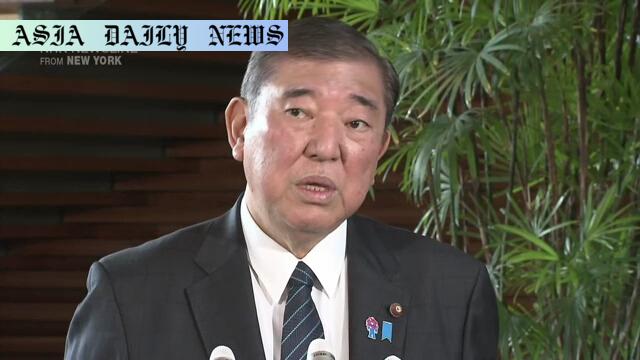Japan’s leaders and citizens look toward US President Donald Trump’s new term with hopes for stronger bilateral ties and global peace.
Prime Minister Ishiba Shigeru eyes an early summit for trust-building with Trump.
Families of abducted Japanese citizens press for Trump’s intervention with North Korea.
Nobel Peace Prize winner Nihon Hidankyo urges Trump to lead on disarmament.

Renewed Optimism in US-Japan Relations
As Donald Trump begins a new term as President of the United States, Japan is closely observing his leadership to gauge its impact on the US-Japan alliance. This critical partnership has historically influenced global geopolitics and economic trends, making this a high-stakes moment for leaders and citizens alike.
Prime Minister Ishiba Shigeru Aims for Trust-Building
Japan’s Prime Minister Ishiba Shigeru has expressed his desire for an early summit with President Trump. Key to this initiative is establishing a foundation of trust based on sincere discussions. According to Ishiba, the focus would be on leveraging the bilateral relationship for global peace and economic growth. His approach also underscores the importance of aligning US and Japanese strategies in addressing broader international challenges such as global conflicts and economic stability.
Families of Abductees Hope for Trump’s Involvement with North Korea
The issue of abducted Japanese citizens remains a focal point of public concern in Japan. North Korea, in the 1970s and 1980s, reportedly kidnapped at least 17 Japanese nationals, of whom only five have been returned since 2002. For families like that of Yokota Sakie, whose daughter remains unaccounted for after almost five decades, hopes are pinned on Trump. During his previous term, Trump demonstrated a capacity for dialogue with North Korean leader Kim Jong Un. Yokota hopes that renewed bilateral engagement could serve as a catalyst to rescue the remaining abductees, particularly as time remains critical for many aging family members.
Nuclear Issues and Global Peace
Another significant concern stems from Japan’s history with nuclear weapons. Mimaki Toshiyuki, co-chair of Nihon Hidankyo—an organization of survivors of the Hiroshima and Nagasaki bombings and the 2024 Nobel Peace Prize winner—expressed concern about global nuclear arms policies under Trump’s administration. Mimaki has urged Trump to serve as a beacon of leadership for nuclear disarmament efforts, aligning this agenda with broader global goals of peace and stability.
Challenges and Opportunities Ahead
While optimism exists, Japan remains cautious about uncertainties in policy direction. Trump’s leadership will likely impact strategic defense alignments, trade agreements, and diplomatic collaborations. Japan must also prepare for potential policy shifts that could challenge its own priorities—whether it’s addressing climate change, shifting trade tariffs, or stringently dealing with security threats.
Conclusion
As Japan awaits further developments, the tone emanating from Tokyo and its citizens signifies cautious optimism. Leaders hope for meaningful dialogue and progress on critical shared concerns. Families of abductees yearn for closure, and advocates for peace urge a proactive approach to nuclear disarmament. What remains to be seen is how these hopes and opportunities are translated into concrete actions.



Commentary
Japan’s Strategic Optimism for Trump’s Leadership
The return of Donald Trump to the White House has created waves of both hope and uncertainty, particularly in Japan. The US-Japan relationship, nurtured over decades, stands as one of the most critical bilateral partnerships globally. Japan’s leaders, including Prime Minister Ishiba Shigeru, are wise to make the early moves towards re-establishing trust and cooperation with Trump. Targeted engagement on shared economic, political, and security concerns will undoubtedly bring clarity to this dynamic relationship.
Humanitarian Issues Remain Front and Center
Humanitarian matters, such as the unresolved abduction cases of Japanese citizens by North Korea, reveal the deeply personal stakes involved in this global discourse. Yokota Sakie’s candid acknowledgment of her frustration is a touching reminder of the real human cost of prolonged diplomatic impasses. While Trump has shown an ability to engage with North Korea in the past, translating dialogue into concrete actions for victims and their families is the challenge ahead.
The Long Shadow of Nuclear History
Japan’s experience with nuclear devastation brings a unique voice to disarmament discussions. Nihon Hidankyo’s appeal to Trump underscores the hope that nuclear powers might prioritize disarmament as a path to global peace. However, achieving progress on such a complex issue requires not just leadership, but consensus among nations—a daunting task in today’s fragmented international sphere.
Final Thoughts
Trump’s leadership presents a unique opportunity for Japan to address long-standing issues while pursuing a more secure and prosperous global environment. The outcomes of these collaborations remain uncertain, but the stakes couldn’t be higher. Through trust and focused dialogue, progress is not only possible, but necessary.